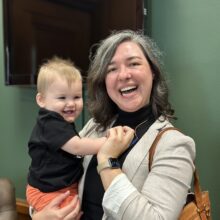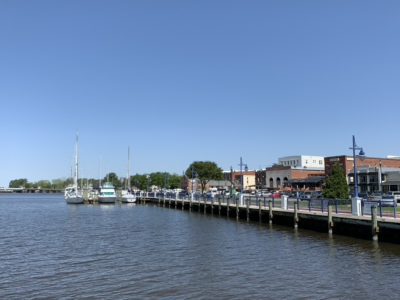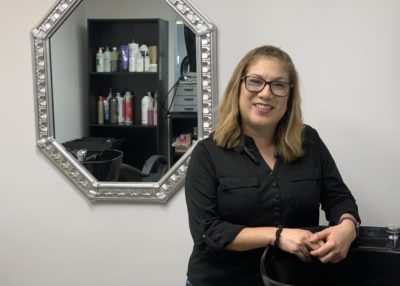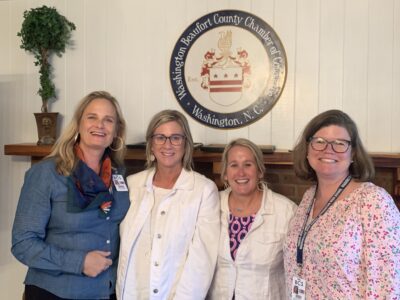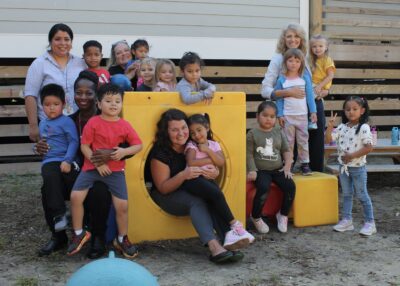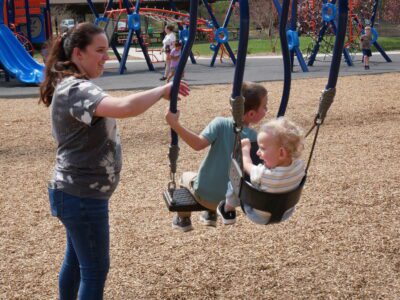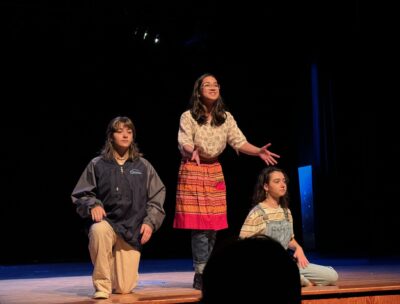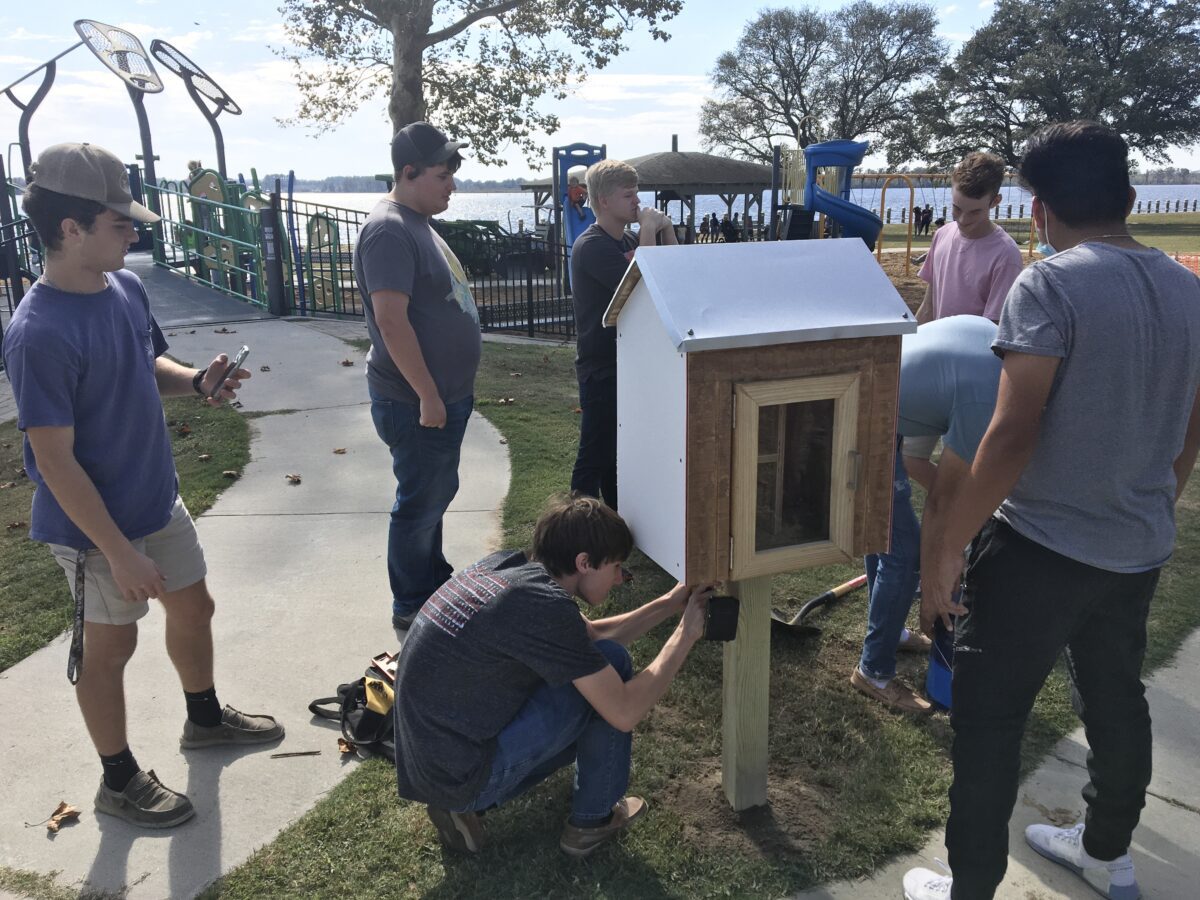
|
|
Over the past five years, a partnership between the Literacy Task Force of Beaufort County and Beaufort County students has resulted in construction of more than a dozen Little Free Libraries across the county.
Now Beaufort County Schools is poised to increase that number as it expands the partnership from a single high school in Chocowinity to all three of its high schools countywide.
“It’s just really a great start-to-finish project,” said Kris Bowen, outreach coordinator for the Beaufort-Hyde Partnership for Children and member of the task force. “For young people to be a part of it just makes it that much more rewarding for us, because we see that it’s really a learning experience that you can’t get just in a classroom.”
Filling literacy gaps
Before the COVID-19 pandemic, members of the Literacy Task Force — a collaborative of volunteer health, safety, and education stakeholders from across Beaufort County — were evaluating their area’s data related to household income and education levels, third-grade reading proficiency, and high school graduation rates. They wanted to get more books into the hands and homes of families, especially families with young children.
“We all know that we live in rural Eastern North Carolina, where not everyone has access to books … not everyone has transportation to get to a library,” Bowen said. “And so we started thinking about, what if we put these little libraries out, and we could try to target areas where we know families might already be visiting, or where families live.”
That’s the mission of the Little Free Libraries nonprofit organization.
Little Free Libraries are typically wooden boxes built atop posts in the ground. They hold donated books that anyone is welcome to take and keep. People can also place new or used books inside to help them find a new home.
There are more than 175,000 registered Little Free Libraries globally. More than a dozen are in Beaufort County and were built by students.
Beaufort is a large county with communities on the north and south sides of the Pamlico River, so Little Free Libraries help fulfill the task force’s mission of “creating a Community of Readers to support multi-generational family literacy by utilizing early-childhood interventions, early-parenting strategies, enhanced parental support for school-aged children and adult-literacy services.”
As Bowen puts it, “Geographically we’re spread out, but as communities, we really pull together.”
Each library is the result of a multi-step process that begins with finding the right location.
The task force uses the Little Free Library map combined with locations of existing public libraries to identify geographic gaps in access to books. They try to place their libraries in relation to how people move about the community.
“A lot of them are in areas that are commonly trekked, it’s kind of on the way somewhere,” said Ashlyn Poythress, a public health educator with the Beaufort County Health Department and steward of the task force’s Little Free Libraries.
Examples include public parks, along with grocery and thrift stores. Poythress said they’re working to add one near the local hospital’s new community garden.
After identifying potential locations, task force members seek sponsorships for covering the $250 cost of materials and installation per library. Sponsors get their name on a plaque placed on the library.
The next step is getting clearance to install the library, which involves seeking permission from the property owner and coordinating with utility services to find a location that won’t disrupt gas, electric, or water lines.
Then it’s just a matter of having the libraries constructed and installed.
Building a ‘community of readers’
David Dixon has been teaching in Beaufort County Schools’ Career and Technical Education (CTE) department since 2011, after years of working in the construction industry. He’s currently teaching at Southside High School in Chocowinity and is a finalist for North Carolina CTE Teacher of the Year.
When he was approached about designing, building, and installing Little Free Libraries in early 2020, he saw an opportunity for his drafting and carpentry students to get hands-on, real world experience — and leave their marks on their communities.
“Anytime they can be a part of actually building and creating something that they get to do themselves and then see in the community … getting them engaged with those type projects makes a huge difference with them actually learning some of the different skills,” Dixon said.
He started by having students in his drafting class help design the Little Free Libraries in 2020, having them focus on the most efficient use of building materials.
In 2021 Dixon’s entry-level carpentry students started constructing prototypes, and later his upper-level carpentry students constructed the actual libraries themselves in 2021. They installed the first ones by the end of the year.
“We just kind of done it as like a field trip where I took some of the kids that had actually helped build them, took the activity bus over, and got to help install them,” Dixon said. “The kids got to see it from start to finish.”
That’s what attracted Kristen Riddle, outgoing public information officer for Beaufort County Schools, to the project when she learned about it from Bowen last year.
“I was like, why do we just do Southside?” Riddle said. “I think all the schools should be a part of it … having the kids be a part of something bigger, and then helping those communities where they can’t get to the library.”
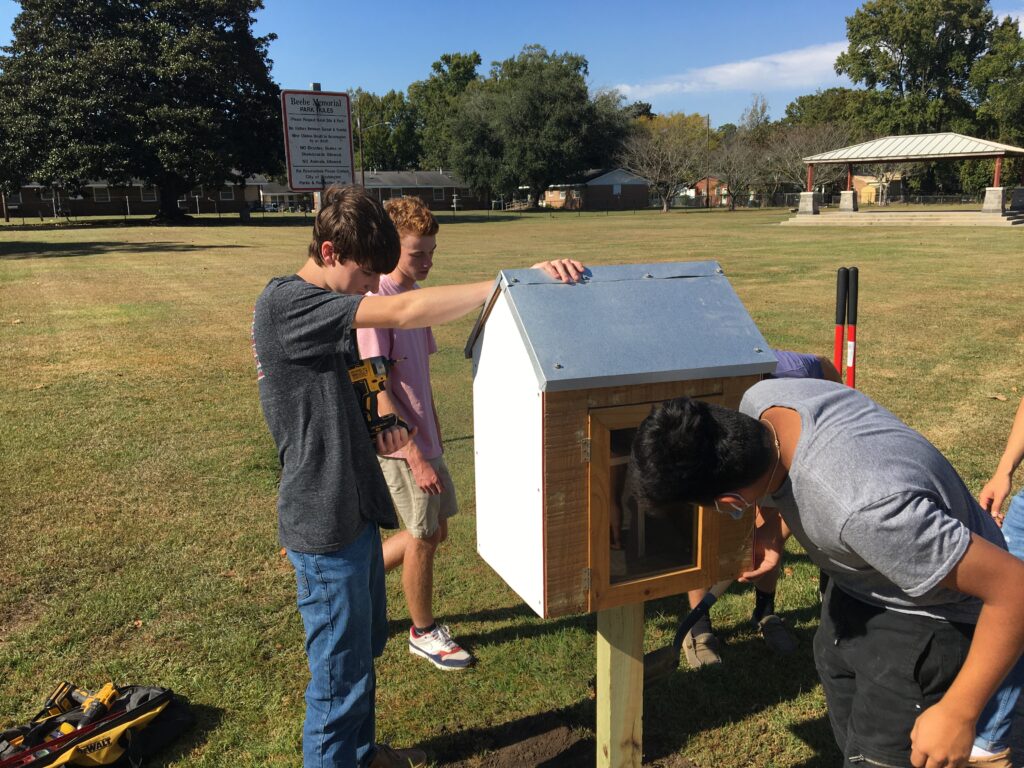
Bowen said the process of finding a sponsor and a location, and getting the libraries constructed and installed, can be slow — “it’s a marathon, not a sprint” — but in her role at the Beaufort County Partnership for Children, she said they’re used to starting small and then scaling up.
“Let’s learn how to get really good at this in this space,” Bowen said of their approach to the project. “And then when [Riddle] mentioned, ‘Well, how about the other two schools?’ then it felt like we were ready as a task force to kind of take that bigger bite and really take it to the next level.”
Riddle said the extra time it takes to involve students in the process from start to finish is worth it because “the pride that they have is priceless.”
Dixon is enthusiastic about the project’s expansion.
“I’m not greedy about it at all,” he said. “That was definitely a good learning experience, a good hands-on project with the kids, and a good way to show them how to give back to the community.”
In addition to the Little Free Libraries built and installed by Dixon’s students, about half were part of an Eagle Scout project done by student Eddie King, who independently raised sponsorship funds for their construction. Members of the Literacy Task Force hope to have future Eagle Scouts consider building libraries for them.
Because the libraries are being used.
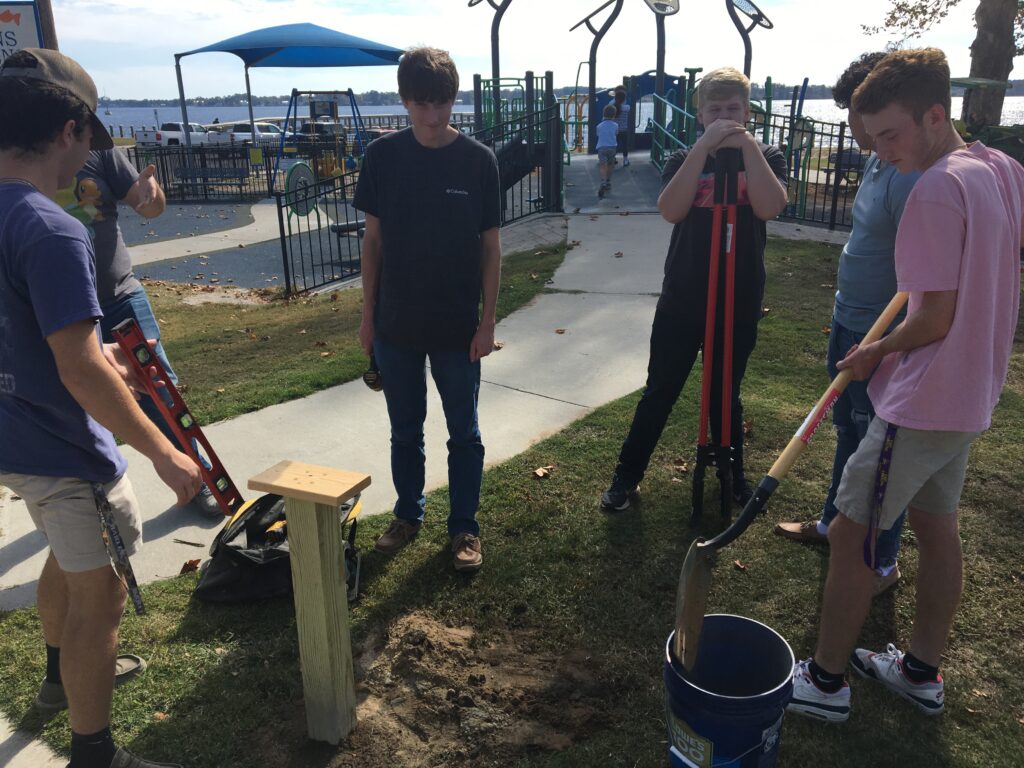
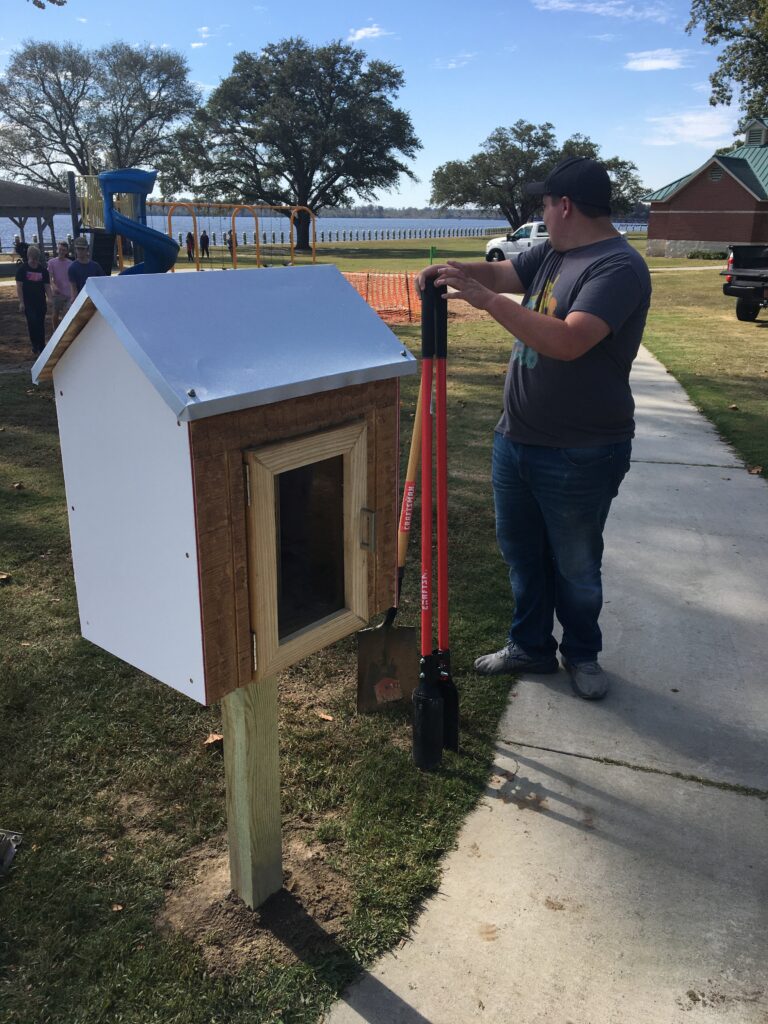

Part of Poythress’s role as steward is to periodically drive around and check on each library. She makes sure they’re not in need of maintenance and that they have plenty of books for readers of all ages.
“They’re pretty well used and well liked,” Poythress said. “The one at Havens Gardens [playground], I go visit that one quite frequently because every time I go, it’s empty.”
Members of the Literacy Task Force collect donated books throughout the year to make sure the libraries stay stocked.
Dixon said his students have told him about their younger siblings getting books from the libraries they installed, which gives them a sense of pride in their community.
“It really, truly feels like a community, grassroots project where it’s just a win-win for everyone,” Bowen said. “And in the end, we have these books that are available for anyone of all ages.”
